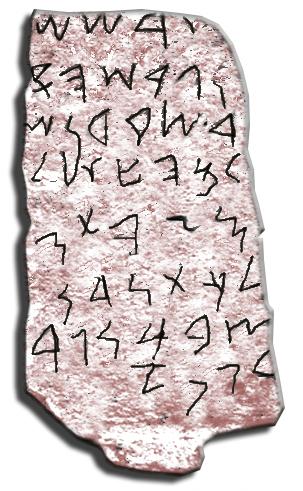|
Pummay
Pummay ( Phoenician: 𐤐𐤌𐤉, ''Pūmay''; 𐤐𐤏𐤌𐤉 ''Pū(ġ)‘may'') is a putative Phoenician deity of whom little is known. Pummay is attested to primarily in theophoric names, such as that of Pygmalion of Tyre.F. M. Cross, “An Interpretation of the Nora Stone,” ''Bulletin of the American Schools of Oriental Research'' 208 (Dec. 1972) 16. Because so little is known about the deity, scholars are unable to assert what Pummay's tutelary function was or what he was associated with. In the context of the legend of Dido and the founding of Carthage Carthage was the capital city of Ancient Carthage, on the eastern side of the Lake of Tunis in what is now Tunisia. Carthage was one of the most important trading hubs of the Ancient Mediterranean and one of the most affluent cities of the cla ..., certain scholars opine that Pummay was also worshipped by ancient Cypriots.Franklin, John Curtis. 2016. ''Kinyras: The Divine Lyre.'' Hellenic Studies Series 70. Washington, ... [...More Info...] [...Related Items...] OR: [Wikipedia] [Google] [Baidu] |
Pygmalion Of Tyre
Pygmalion (Ancient Greek: ; Latin: ), was king of Tyre from 831 to 785 BCE and a son of King Mattan I (840–832 BCE). During Pygmalion's reign, Tyre seems to have shifted the heart of its trading empire from the Middle East to the Mediterranean, as can be judged from the building of new colonies including Kition on Cyprus, Sardinia (see Nora Stone discussion below), and, according to tradition, Carthage. For the story surrounding the founding of Carthage, see Dido. Name The Latin spelling represents the Greek . The Greek form of the name has been identified as representing the Phoenician ''Pumayyaton'' (or ). This name is recorded epigraphically, as , , a theophoric name interpreted as meaning " Pummay has given". This historical ''Pumayyaton'' however, was a Cypriot "king of Kition, Idalion and Tamassos", not of Tyre, and lived several centuries after Pygmalion of Tyre's supposed lifetime. The Nora Stone, discovered in 1773, has also been read as containing the ... [...More Info...] [...Related Items...] OR: [Wikipedia] [Google] [Baidu] |
